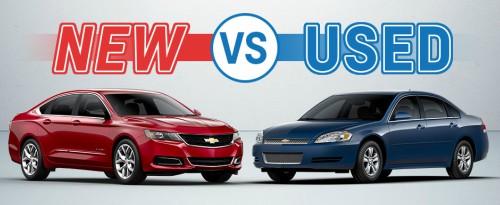Otherwise, belt up as we take a whistle-stop tour of the wondering and worries to come.

New car prices
You might wonder why, here, on a used-car website, the cost of new cars matters. Good point. Except that used car prices are always going to be affected by the price of new cars. Not just because if you paid £30k for a new car one year, but had to pay £32k the next day, you might want more for it when you later came to sell it. The reality is that the marketplace decides the value of a car, what people will pay for it, and this leads us to the point about used car prices.
Used car prices
If new cars were to get more expensive, then more people might decide to opt for a used car as an alternative. This might then see used car prices increase, as more people competing for them. Likewise, if more people simply kept their previously new car for longer, we might see more competition for the fewer used cars appearing on the market.
Of course, the opposite is also true: if new cars were to get cheaper, then more people might opt to buy new, meaning more used cars hit the market and prices might also reduce.
Tariffs – terrible or terrific?
The UK motoring industry will want to still see investment in car building in the UK and to be able to keep and recruit more talent from the EU to work in its car plants, and of course the opportunity to sell cars to EU countries as well as the rest of the world. The RAC has already stated that there is little evidence that the BREXIT decision will make buying a car more expensive: after all the UK is a huge market for European car makers and they would want to stay competitive with each other. If in the longer term, any re-negotiated trade tariffs between the UK and the EU meant that prices did rise, then we might see a rise in ‘unofficial’ grey imports from Europe, where it remains cheaper to import a car with all the associated costs than to buy new in the UK. One of the importing car brokers AutoBid has noted that a drop in the value of the pound would inevitably see list prices rising to adjust to new exchange rates.
For those using finance deals to buy a car, a change in interest rates could be a concern. The current low-interest rates might be hard to sustain, with some predicting the cost of borrowing would have to rise as and when the banks raise interest rates to defend the pound. Will it happen? It may – but for every person suggesting they will, there seems to be another saying they will not. Glad to have cleared that up. More importantly, if you already have a finance deal in operation, you might be wondering about this given that much of the financial regulation that applies in the UK is derived from EU legislation. The key point here is that in the short to medium term, things will simply stay as they are: the regulations don’t and won’t change overnight. So, keep paying that monthly sum, for now!

If you think it’s bad now…prepare for well, probably a little worse. Despite UK drivers already facing some of the biggest bills in Europe at the petrol pump, a drop in the value of the pound, perhaps of up to 20% as seen likely by some, would see around £2 added to the cost of filling up an average family car. The long-term view is about as clear as driving in fog. What’s more, since wholesale fuel is traded in dollars, the price of oil could well be a greater influence on prices than the strength of the pound. Pass me that oily rag, so I can polish my crystal ball.
Heading off to Europe in your car this summer? Apart from the prospect of bemused Belgians and garrulous Germans spotting your GB sticker and asking you why you want to leave them, you may be wondering whether you can still travel freely? Right now, nothing has changed: Britain has never been part of the passport-free Schengen area, so you should expect passport checks at all borders as usual, and then free-movement once inside this area.
Don’t forget your EHIC (European Health Insurance Card) as this will continue to cover you for healthcare costs. In terms of car insurance and breakdown cover, the road ahead is less clear. The AA has said they don’t think the BREXIT will affect the cost of breakdown cover abroad, but arguably better advice would be to simply try and not break down abroad in the first place. Simple huh? You’re welcome.
Last but by no means least, especially when it comes to money is the cost of car insurance post-BREXIT. Things could change quite significantly. We might see the rule about equal premiums for male and female drivers being abandoned. This was imposed on insurers after a ruling in 2012 by the European Court of Justice, and in time, the UK could allow differential pricing, meaning higher costs for men and – swings and roundabouts - lower costs for women. Whatever your gender, you could be also affected if the thrillingly titled EU Motor Insurance Directive is kicked to the kerb. If so, instead of a guarantee of being insured when we choose to cruise on the roads of Europe, we might end up facing a higher cost of cover for the privilege.
The road ahead
It’s early days, and so whilst there is plenty to chew over, and much we may yet have to swallow, there is as yet not much too much to digest. Best bet is to watch this space. Just note that it’s a huge one and there could be a bus with an out-of-date BREXIT slogan about to reverse into it.
For more CarCliq News, click here.